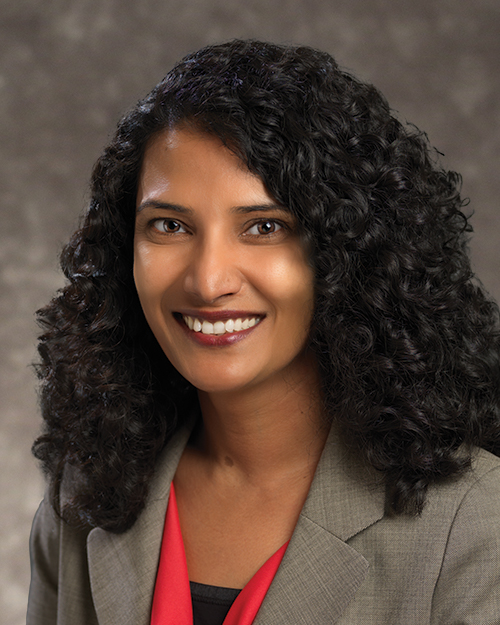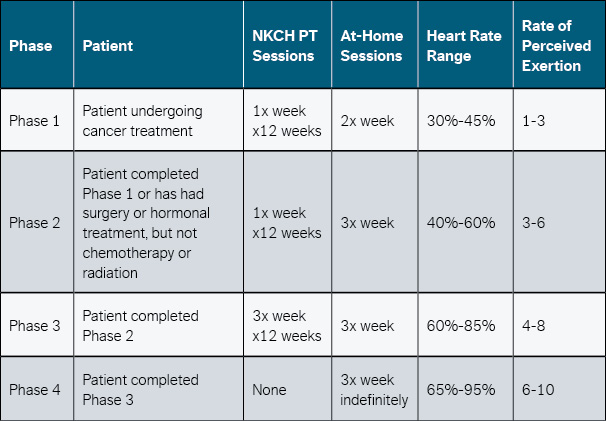 Rajya L. Malay, MD, FACC
Rajya L. Malay, MD, FACC
Rajya L. Malay, MD, FACC, a cardiovascular disease specialist with Meritas Health Cardiology, has long strived to treat patients diagnosed with cancer who are at increased risk of heart complications. In 2020, this professional interest developed into a rare subspecialty with certification from the International Cardio-Oncology Society, which acknowledges her expertise in preventing and treating cardiac disease during and after cancer therapy.
Increased Survivorship
Dr. Malay pointed to cancer therapy advancements, such as targeted therapies, including immunotherapy, which have significantly improved cancer survivorship.
According to the American Cancer Society and National Cancer Institute, more than 16.9 million Americans with a history of cancer were alive on January 1, 2019. That number is expected to increase by 31.4% to more than 22.2 million by 2030. More than one-half (56%) of survivors were diagnosed within the past 10 years, and almost two-thirds (64%) are aged 65 and older.
Cardio-Oncology Rehab Program
A new NKCH Rehabilitation Services physical therapy program -- Cardio-Oncology Rehab -- developed by Dr. Malay and Sue Condon, PT, NKCH Rehabilitation Services Director, helps patients increase their cardiovascular activity levels safely under medical guidance.
Over four phases (see CORE Phases table), a PT with advanced training in oncology rehab works with the patient to improve physical function and reduce fatigue caused by the side effects of cancer treatment, such as cardiotoxicity and pulmonary toxicity. Covered by most insurance, participants undergo an evaluation, which entails a treadmill protocol or work on other equipment, if needed. Once accepted, patients take part in a 12-week customized program.
Cardiac Risk
Whereas congestive heart failure was a known complication of cancer therapies and continues to be a significant concern, recent advances in cancer treatment have brought some serious cardiac repercussions.
“More people are receiving aggressive cancer therapy now than ever before, and they are living past their cancer diagnosis,” Dr. Malay said. “This means we are seeing a lot of people who have been exposed to advanced and often toxic cancer therapies.”
Severe high blood pressure, leg swelling, the effect on peripheral arteries, and irregular heart rhythms, such as AFib, are among some of cardiac side effects she has encountered.
“Not just medical therapy, but radiation therapy has also been associated with multiple cardiac effects, such as coronary artery disease, thickening of valves and the pericardium, and, more recently, it has been attributed to blood pressure and heart rate abnormalities. It is without a doubt clear that cancer survivors have a higher cardiovascular mortality, and we have a growing population of cancer survivors,” said Dr. Malay, who as a cardio-oncologist aspires to help this vulnerable population.
CORE Phases

Cardiac Care
Increased discussion about shared risk factors, such as smoking and obesity, between cancer and cardiovascular disease stems from a concerning question.
“Does heart disease somehow make people more prone to cancer later in their life? Though we do not have an answer, we often come across situations of what we refer to as reverse cardio-oncology,” she said.
She noted if a 68-year-old female had a heart attack and stent placed three years ago and is now diagnosed with cancer, her care should involve a team approach with guidance from oncologists and a cardio-oncologist. Having a prior cardiac history makes her more prone to cardiac side effects from her cancer therapy,” Dr. Malay said.
NKCH and The University of Kansas Cancer Center joined forces in January 2014 to host a cancer program in the Northland.
“We have a large population of patients with cancer, and they appreciate the partnership because they can get their cancer treatment and cardiac care close to home,” Dr. Malay said.
Maureen H. Sheehan, MD, an oncologist with The University of Kansas Cancer Center on the NKCH campus, appreciates Dr. Malay’s expertise in assisting with the management of cardiac complications in patients on active treatment and long-term survivors.
“It is a great benefit to the patients of our combined KU-NKCH cancer program to have a local expert in cardio-oncology,” Dr. Sheehan said.